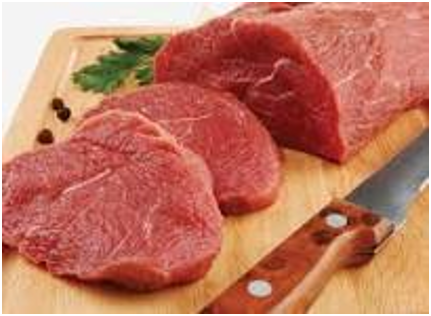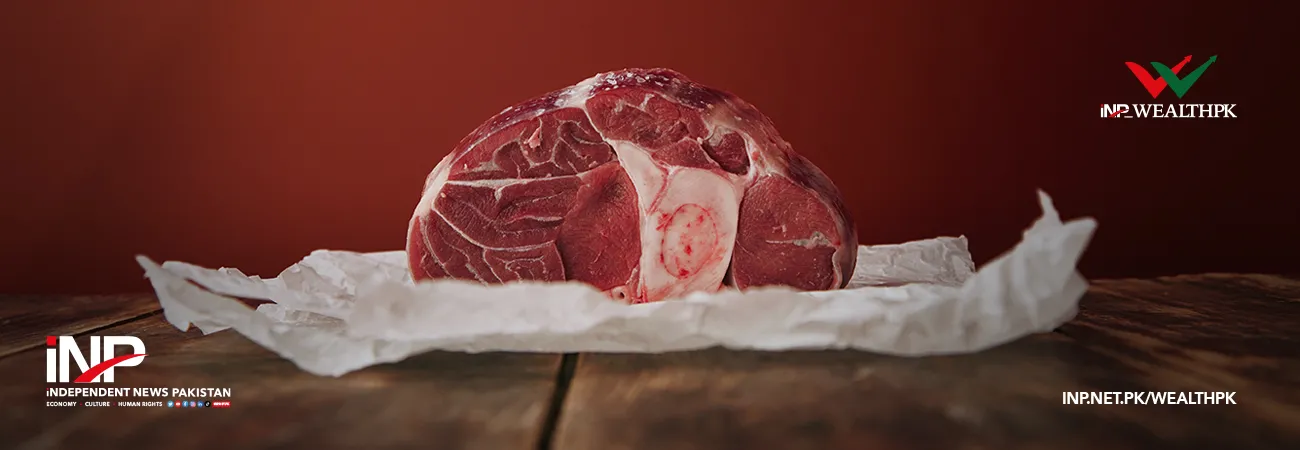INP-WealthPk
Azeem Ahmed Khan
Pakistan’s halal meat industry holds significant potential to contribute to the economy by increasing exports, but it faces several pressing challenges that have hindered growth, said a leading meat exporter and processor.

Talking to WealthPK on the condition of anonymity, he said the challenges range from issues with food safety and government policies to infrastructure and international market trust. “Addressing these barriers is critical for unlocking the full potential of the sector. With the right approach, Pakistan can establish itself as a trusted, competitive player in the global meat market,” he said.
One of the biggest obstacles to the industry is its failure to meet the international food safety and quality standards. Many meat exporters struggle with compliance but fail to meet the globally recognized certifications such as HACCP, ISO, Halal, and USDA, he added. “This results in rejection from the foreign markets that demand high-quality products.
Moreover, there is weak enforcement of veterinary health protocols and disease control measures, further putting the sector at risk.” He opined that adopting the globally recognized food safety standards is essential for increasing the trust of international buyers. Strengthening veterinary inspections and disease control measures will help improve product quality and safety, he added.
Additionally, implementing blockchain technology for traceability and transparency will ensure that Pakistan’s meat industry meets the expectations of importing countries. He pointed out that the lack of supportive policies has also been a significant roadblock for the meat industry, as high taxes and lack of export incentives discourage businesses from investing in the meat export sector.
There is no dedicated meat export policy or subsidy that could help improve the industry’s competitiveness, he added. Bureaucratic hurdles, especially in obtaining export licenses and approvals, also slow down the process, making it difficult for businesses to expand, he pointed out. He was of the view that the government must take a proactive approach to support the meat export industry by reducing export duties and offering financial incentives to the exporters.
This would help make the sector more competitive on the global stage, added the meat exporter. Simplifying licensing procedures and eliminating bureaucratic delays will also make it easier for businesses to obtain necessary approvals, he said. Furthermore, negotiating trade agreements with key importing countries can open up new markets for Pakistani meat, he added. He observed that Pakistan’s meat industry suffers from inadequate infrastructure.
Poor cold storage facilities, subpar slaughterhouses, and outdated processing methods make it challenging to maintain product quality, he said. Weak logistics and transportation systems exacerbate the issue, leading to higher wastage during the transportation process, he highlighted. Moreover, limited investment in modern packaging and preservation techniques results in a lack of appeal to international buyers who demand high-quality, well-preserved products, he added.
Upgrading the country’s infrastructure is crucial for maintaining the quality of meat during the export process, he said. Developing state-of-the-art slaughterhouses and cold chain storage systems will help preserve meat quality and ensure it remains fresh, he added. Public-private partnerships could be instrumental in improving logistics and packaging, while expanding refrigerated transport is necessary to maintain the quality of meat during long-distance shipments, he pointed out.
He noted that negative perceptions and trust issues in international markets have harmed Pakistan’s ability to increase exports. Past instances of meat consignments being rejected or banned have tainted the reputation of Pakistani meat in key markets, he added. There is also lack of transparency and traceability in the supply chain, which undermines international confidence.
Pakistan faces challenges in distinguishing itself from other meat-exporting countries due to the lack of strong branding and a marketing strategy that positions its halal meat as premium quality, he added. He stressed that rebuilding trust with international markets will require diplomatic efforts and clear communication of improvements in quality standards.
Engaging with global buyers through trade fairs and inviting them to inspect Pakistani meat facilities can help restore credibility, he suggested. Furthermore, he said, establishing a national meat export brand with strict quality assurance measures will help position Pakistani meat as a premium product on the international market.
Credit: INP-WealthPk













